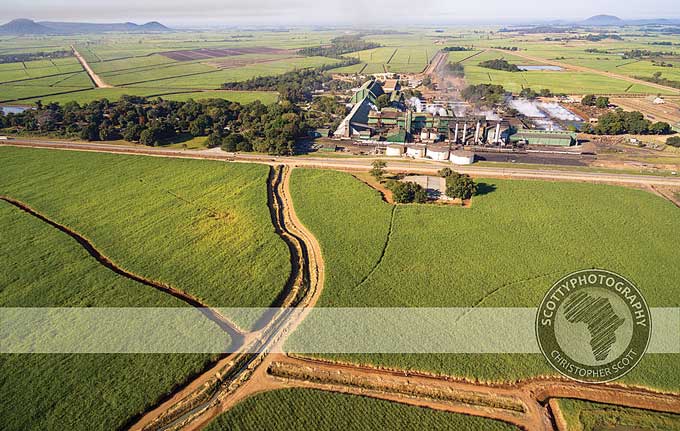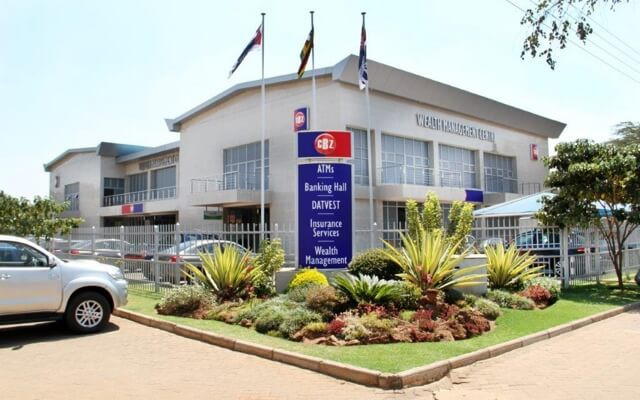
A TAKEOVER of one of southern Africa’s biggest sugar producers by a wealthy Zimbabwean family was never going to be sweet news for those in South Africa’s financial markets.
But, according to Hamish Rudland, who has just won a shareholder vote that will give him control of Tongaat Hulett, a Zimbabwean owning Tongaat is not a handicap. It is just what the troubled company needs.
The bulk of the company’s output is from Zimbabwe — at Hippo Valley and Triangle — and Zimbabwean shareholders know the layout of the land more than anyone, he says.
“With Tongaat’s largest operating business being in Zimbabwe, our local knowledge of the landscape and operating environment will be of significant benefit to Tongaat,” Rudland said ahead of the vote, in response to questions over his intentions.
At an extraordinary general meeting on Tuesday, Tongaat shareholders approved the proposal by Magister, an entity led by Rudland, to underwrite a R4 billion rights offer for the company.
Tongaat is desperate for fresh capital to erase a debt that was as high as R11 billion and to start fixing the damage from an accounting scandal.
One headline said: Zimbabwe tobacco barons’ planned capture of Tongaat Hulett. It was capture, to the critics, and not a standard rights issue.
Before the vote, some minority shareholders opposed the deal.
- Chamisa under fire over US$120K donation
- Mavhunga puts DeMbare into Chibuku quarterfinals
- Pension funds bet on Cabora Bassa oilfields
- Councils defy govt fire tender directive
Keep Reading
When minorities fail to pay for more shares in a rights issue, the underwriter, in this case Magister, gets more shares.
Shareholders that don’t subscribe for more shares get less stock.
The problem is, the Rudlands knew that those shareholders — who would have paid for up to seven times the value of their shares — had little choice, given the state of Tongaat’s books.
The rights issue is the last resort.
Selling assets and tightening spending failed to clear the debt.
Magister saw an opportunity to take over Tongaat by underwriting a capital raise.
Tongaat’s market capitalisation is around R740 million, compared to remaining South African debts above R6,5 billion.
Still, the Rudlands’ proposal did not exactly meet with cheers from minorities and the business press in South Africa.
Rudland has been linked to the ruling Zanu PF party and has had to face accusations that he is trying to clean dirty money from cigarettes.
This allegation relates to Hamish’s brother, Simon.
He has been in the cigarette business since 2005, and his Gold Leaf Tobacco Corporation has been accused of flooding South Africa with cheap cigarettes.
The controversy heightened when Simon survived an assassination attempt in Johannesburg in August 2019.
A City Press report had claimed that about 26,8% of all cigarettes sold in South Africa were “illicit” and that this trade was dominated by his Gold Leaf Tobacco.
Hamish insists Magister has nothing to do with his brothers’ business.
Questions over the Rudlands’ alleged links to Zanu PF had dogged the transaction.
“The reports and links have been published without evidence, compiled based on internet research and we have never been interviewed nor commented on any such allegations,” Rudland insisted.
Hamish and Simon formed Pioneer Transport in 1995, growing their business into Pioneer Corporation Africa through the acquisition of other leading but struggling transport businesses, including Unifreight — owners of Swift transport — Bulwark, and Clan.
The Rudlands have been active investors on the Zimbabwe Stock Exchange, holding significant stakes in assets such as ZimRe Holdings.
In 2015, when the Rudlands took over ZimRe in a rights issue, an empowerment group angrily wrote to government to protest what it called “a most brazen, unconscionable, unpardonable, attack on the reflex of local economic empowerment”.
Magister has just recently engineered the consolidation of Zimplow and Unifreight subsidiaries, a deal in which he made sure that minorities had little option but to take the deal.
With Tongaat shareholder approval, Rudland now sets about trying to restore the company.
It will not be easy, he says: “Magister believes that the turnaround of Tongaat will take time.”
Rudland adds: “Magister has seen an opportunity to make a strategic investment into Tongaat, a company that is by no means in a strong position and it requires hard decisions to be made to turn around its fortunes.”
For shareholders, the recent weeks have been evidence of these “hard decisions” one must often take in the markets.
They have had to look past the controversy around the Rudlands, and all the prejudiced views about Tongaat being “captured” by a foreigner, to admit a hard fact; Tongaat had nowhere else to go.
It has been, yet again, just the latest show of the Rudlands’ long history of ruthless timing, and a knack for making minorities offers that they can’t refuse. — newZWire











